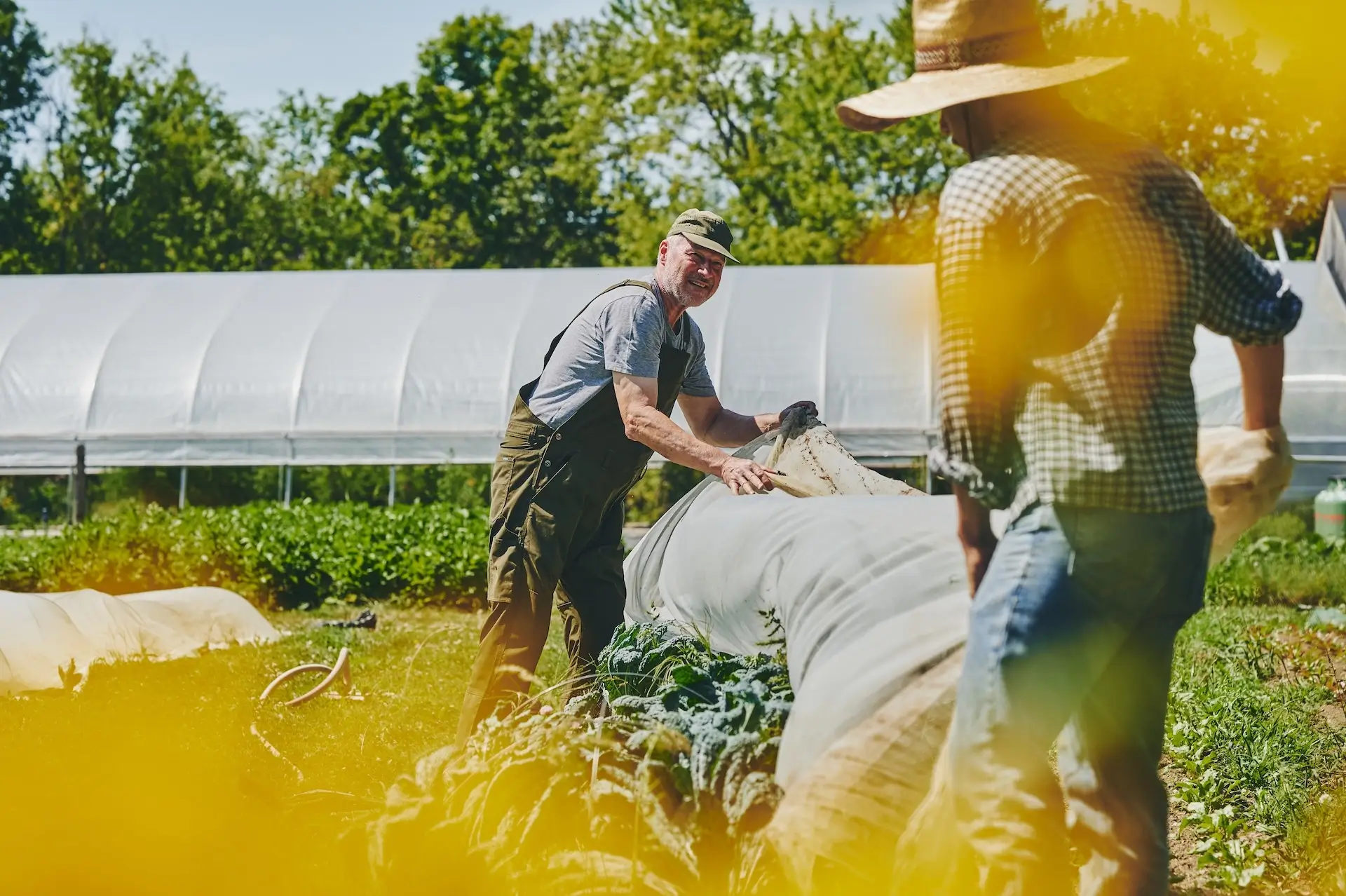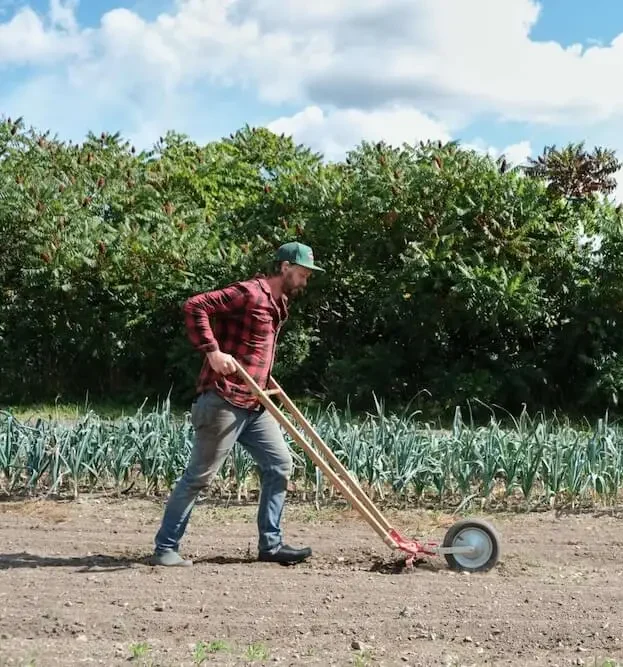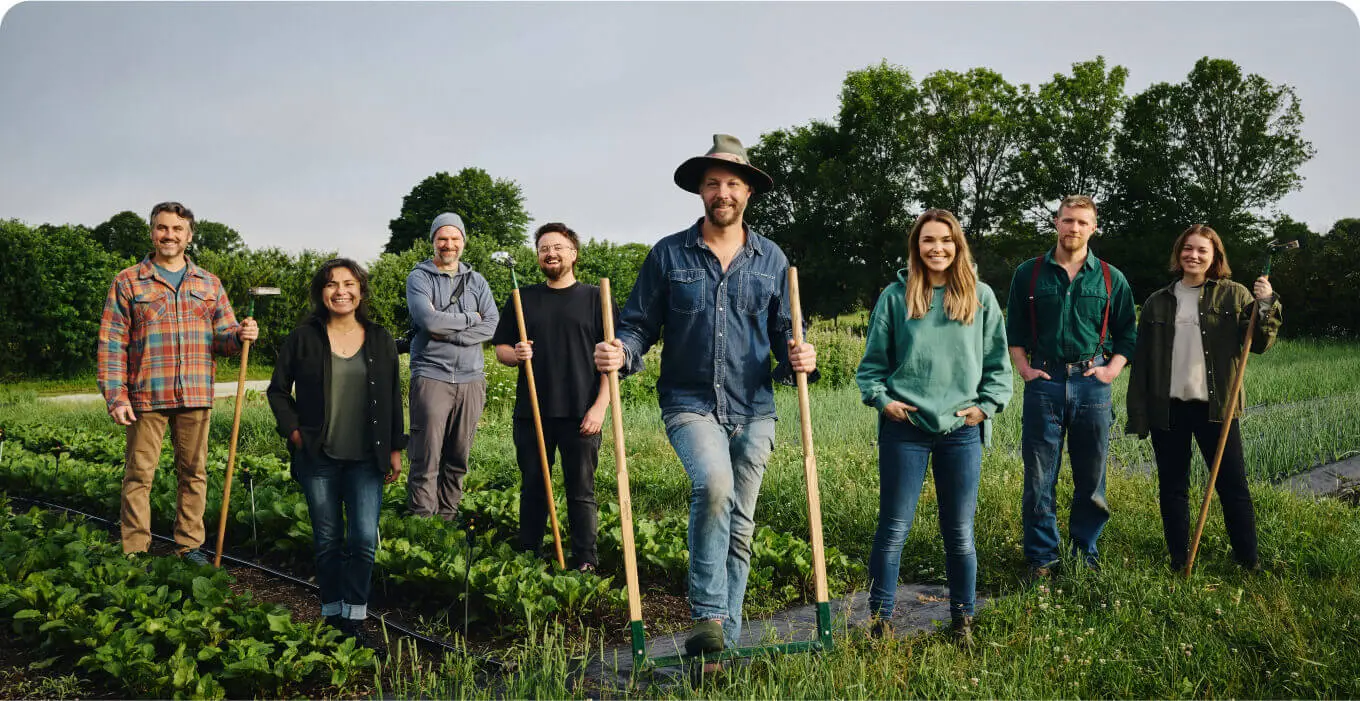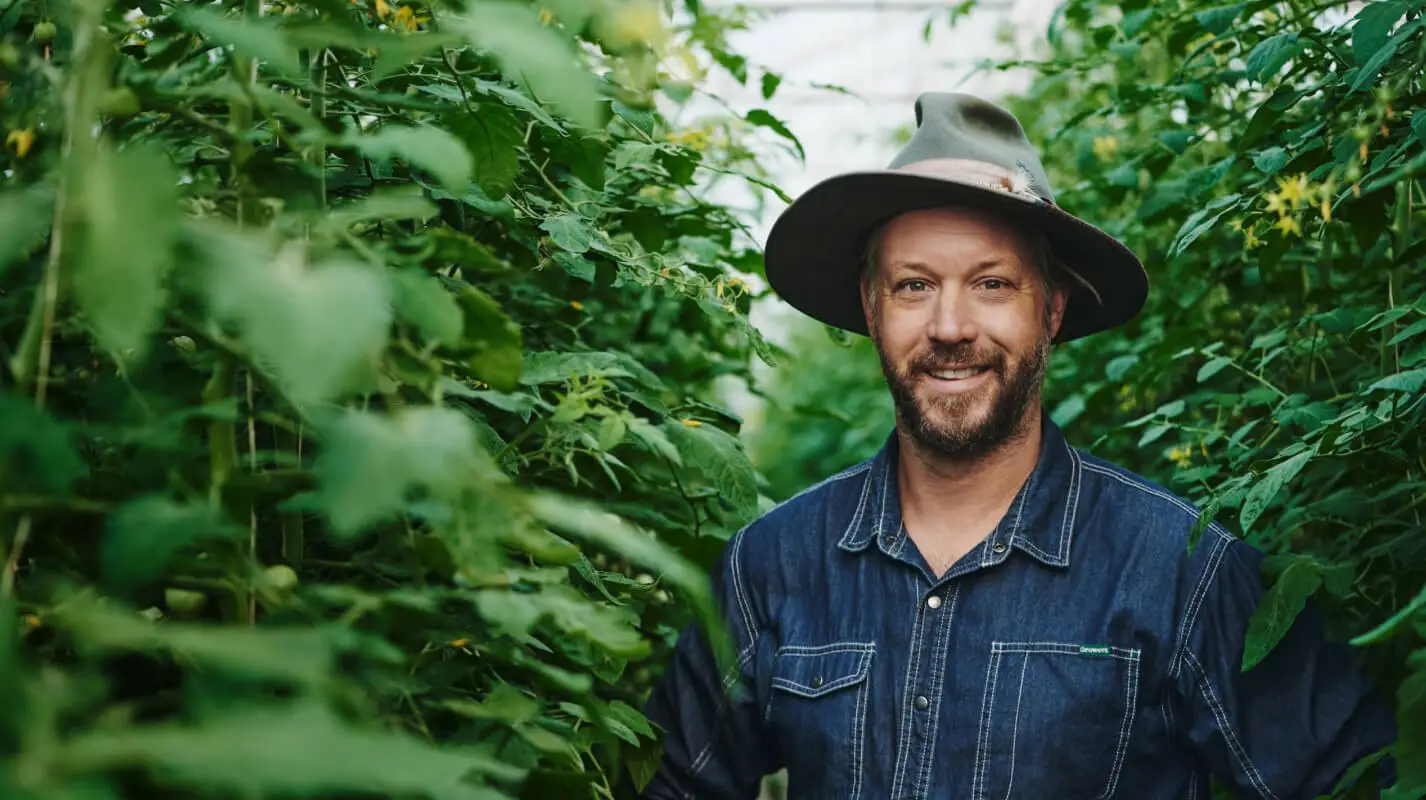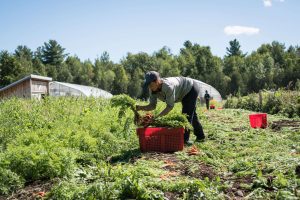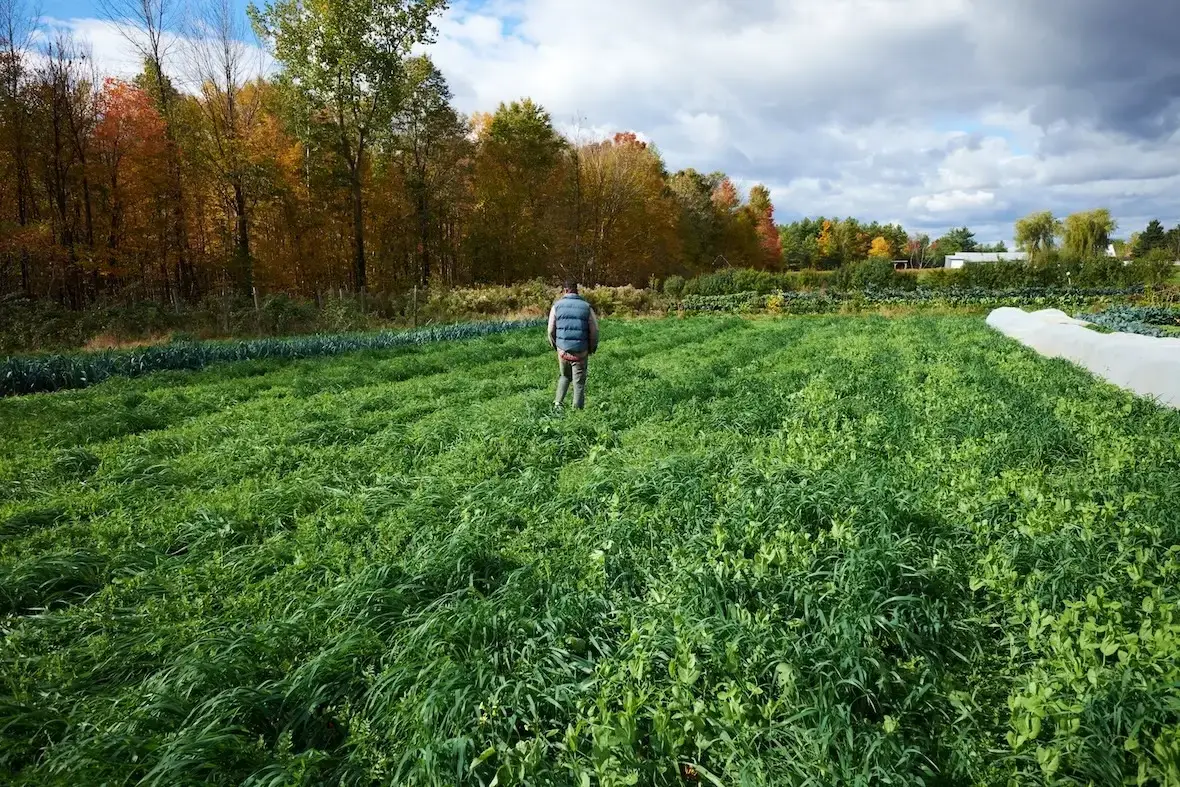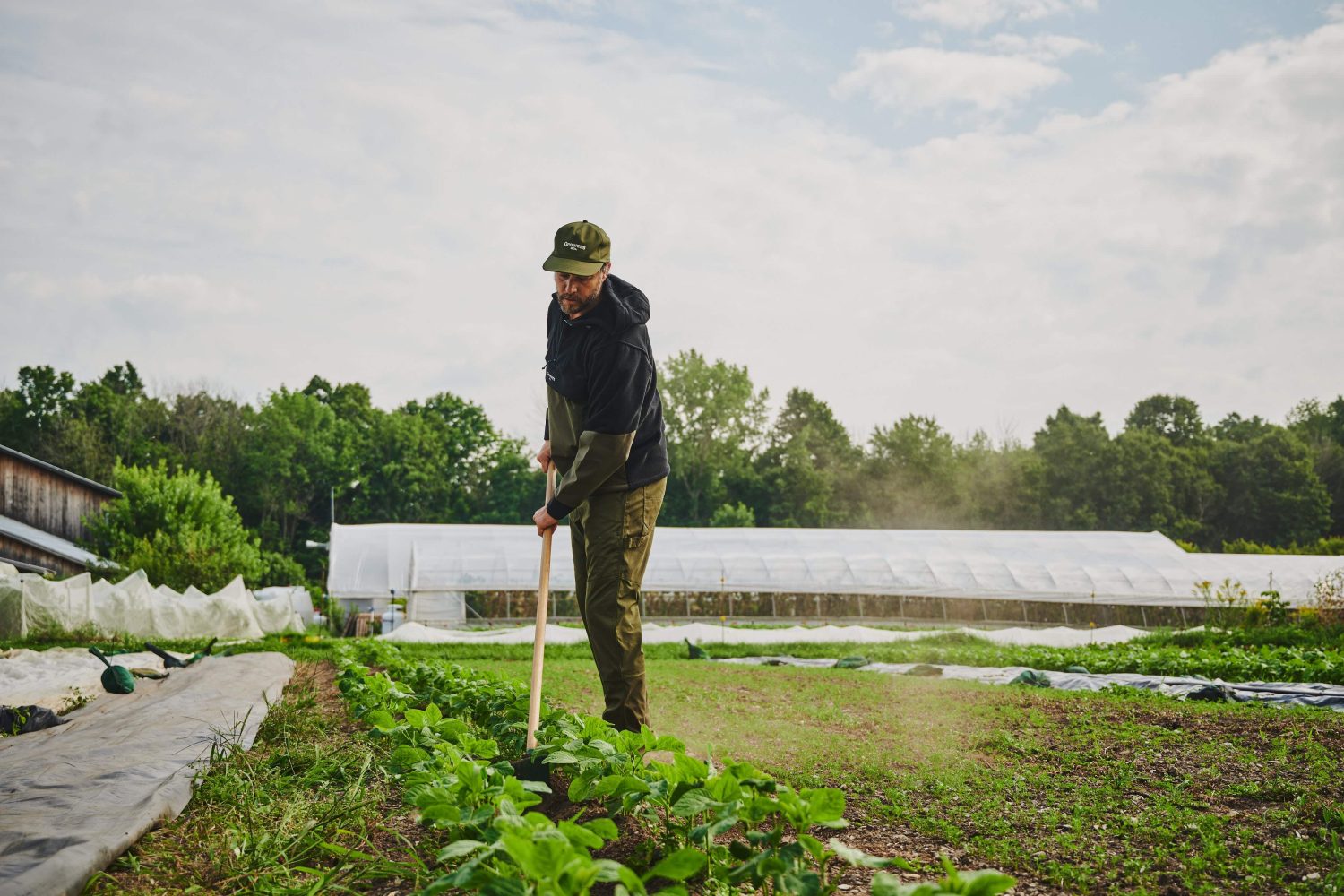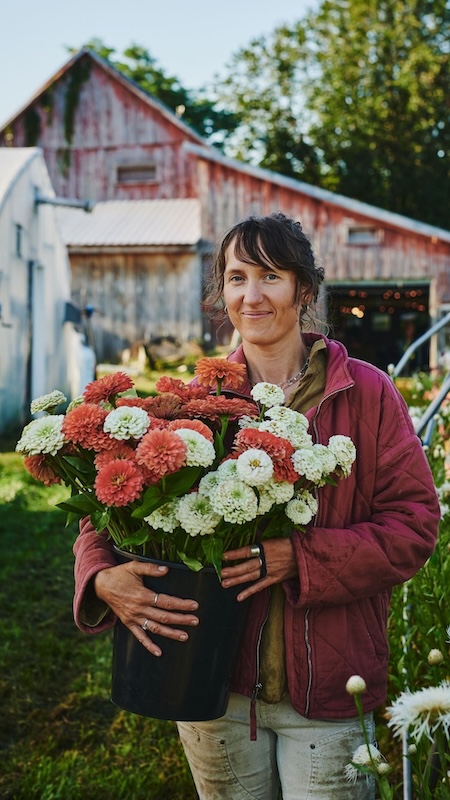This article is part of our series on raising a family on a farm.
For many growers, the opportunity to raise their families with fresh, healthy food, easy access to nature, and a connection to the land is a significant part of why they chose market gardening as a profession. But balancing family and farming is not always easy: both jobs require a great deal of time, care, and a willingness to adapt to the unexpected. Building a farm business that fits family life rather than forcing your life to fit the business is one of the keys to achieving that balance.
We spoke to 5 market gardeners with children of different ages about their experiences, challenges, and tips. We invite you to embark on this journey with them via this miniseries of 5 articles which chronicle the biggest takeaways from those conversations.
Free Ebook : 10 Growers Who Chose Farming as a Way of Life Get inspired by farmers who followed their passion and built meaningful lives feeding their communities.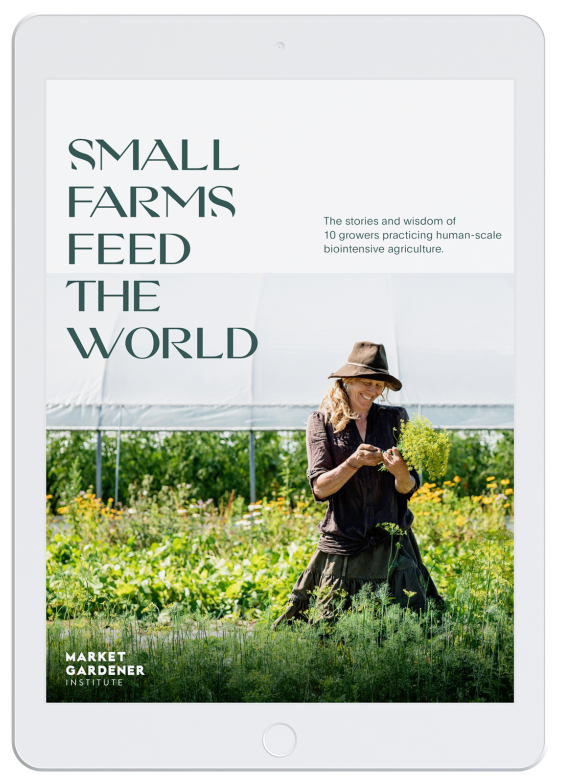
Building Your Farming Business around Your Family’s Needs
One of the huge advantages of being an entrepreneur is that you get to create your own job and find a business model that works well for you. For a lot of the growers we spoke to, this meant adjusting the pace of their farming business growth over the years to reflect the time needed for their families.
For example, Anna Raines of Rains and Sun Hilltop Farm in Kentucky started her farm in 2013 when she was pregnant with her second child. As the primary farmer, the need to balance family and farm meant that she built her business slowly for the first four years, throughout the early years of caring for her three children. During that time, she and her husband were able to build infrastructure and grow a core clientele so that as her kids got older and she had more flexibility, Anna was able to grow the business much faster, but without significant debt and with many of her structures already in place. This long-term approach is a clear example of building a farm business that fits family life.
Misha Shodjaee and Jessey Njau at Zawadi Farm in Southern Ontario echo this call to create your business in your own image: “People are often encouraging us to significantly scale our business – they think our operation should be 10 times the size – but we’re both very interested in being good dads.” For them, scaling their operation to that level would mean losing the family connection that makes their work meaningful and important.
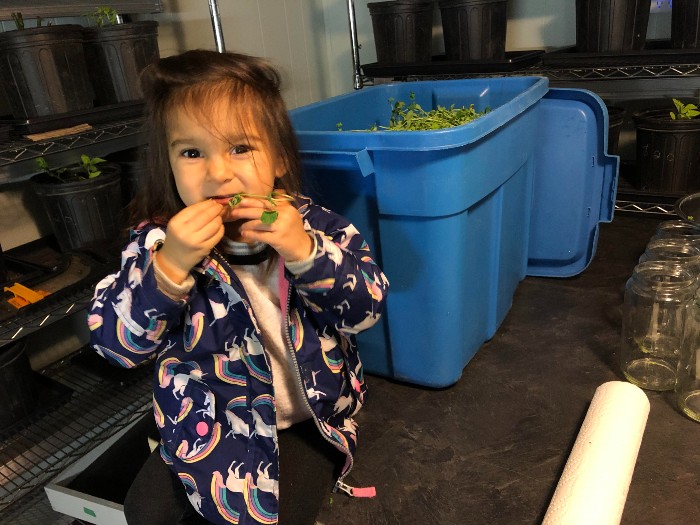
Simplify, Focus, Streamline
Building your farming business in a conscious way while your children are young doesn’t necessarily mean sacrificing growth, and it certainly doesn’t mean you shouldn’t be profitable. Instead, we recommend that if you’re at a point in your life where time is at a premium, you take it as an opportunity to revisit both your farming practices and your sales channels, and see if there are ways they can be optimized so you can be more efficient with your business.
Working to streamline your growth and sales can be immensely valuable in terms of time and effort. For example, is there a chance that increasing your CSA sales by 20% would allow you to stop going to the farmers’ market on the weekend? Or that you can increase the volume you sell to each restaurant client? In general, if you can sell more to each client, or at each drop-off point, your time is being used much more efficiently.
One of Myrtha Zierock’s biggest lessons on running a business while parenting was to practice saying no! Before her son was born, she realized that in order to be able to delegate effectively she had to drop some of the sales channels and projects that weren’t essential or profitable to her business. Instead, she focussed on maintaining a high degree of quality and great customer service in her main sales channels, rather than trying to do it all.
Looking at the bigger picture, doubling down on what works, and focussing your energy there can be easier and more profitable than fighting against things that aren’t as successful. This can apply to crops as well as sales channels – if you have a busy year ahead, look at your crop plan and determine your least profitable and/or most time-consuming crops. Can you drop 5 of these crops from your plan this year? This practice of making your business ‘leaner’ can often make you more profitable by allowing you to focus on the crops that do well, rather than spending precious time and energy on low-yielding or low-profit crops.
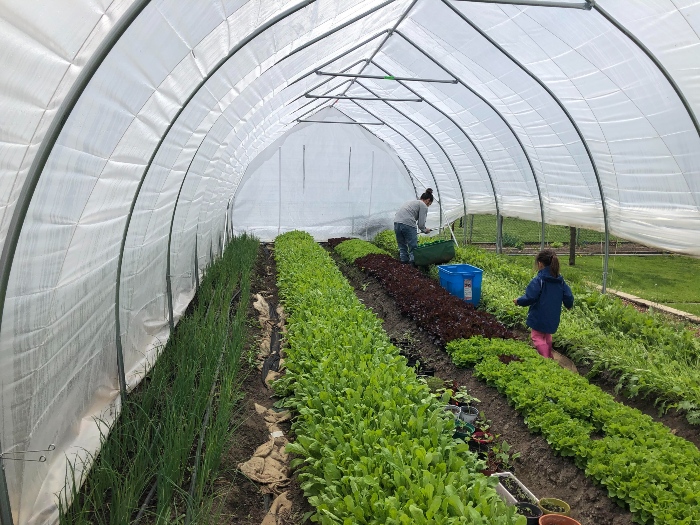
Factoring in Time Off
On a practical level, building your farming business around your own needs also means creating a day-to-day schedule that works for the realities of your family life. For many farmers, that means finding ways to take time off in the summer to make memories with your kids.
In the subtropical climate of North Carolina, Ben Street of Street Fare Farm splits his CSA into two seasons with a month and a half in between during the summer, leaving him time during the hottest part of the year to catch up, recover, and find some time for family. In Northern Kentucky, Anna Raines takes a week off of her CSA in August, which lets her take a vacation with her kids. Rather than being a detriment to her business, she finds that her customers are often happy with the pause, as it allows them to catch up on their vegetables during the peak of the season.
For growers in northern climates with short seasons, even a week off may be unrealistic, but in Southern Ontario, Jessey and Misha from Zawadi Farm make sure they’re there for their kids by ending their workdays at 3 pm to be available for their kids after school.
Creating a production model and a sales model that incorporates time off for the farmers, and prioritizes family time and connection, is part of what makes your business sustainable in the long term. When you and your family are able to thrive within the systems you’ve created, you will be better equipped to give your best to both your farm and to your family.
Parenting and farming can be quite a journey! We have prepared a series of articles that will help you navigate those exciting experiences.
We invite you to consult the following articles:


